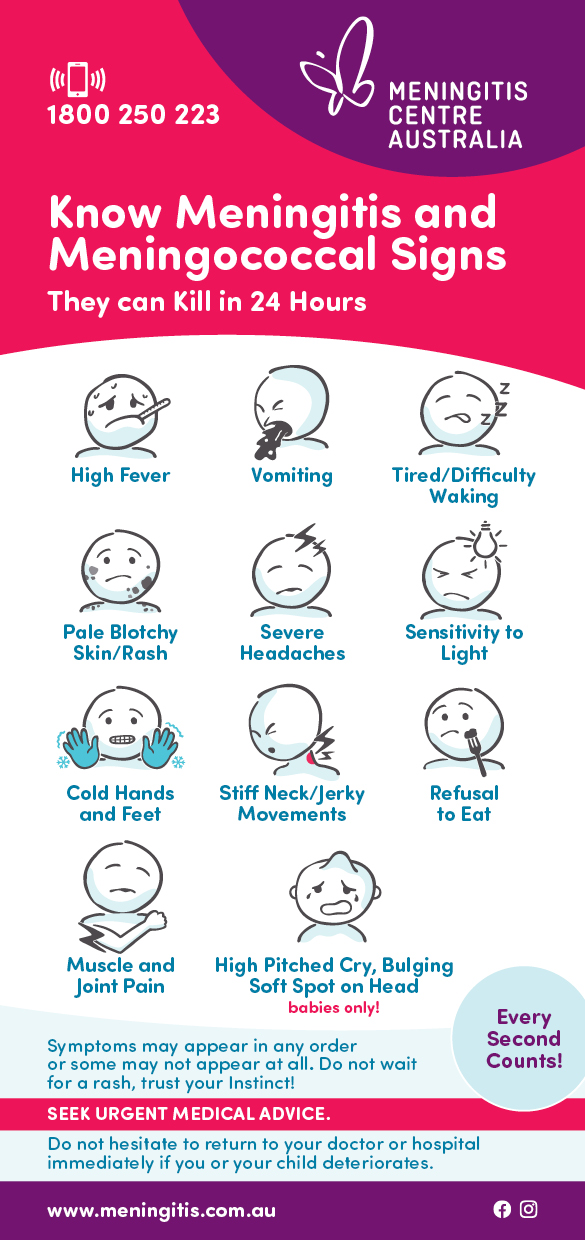
Free Vaccines for SA Students: Can This Meningococcal B Study Stop Teens From Spreading the Disease? · Student Edge News Articles
This month, researchers at the University of Adelaide will provide free meningococcal B vaccines for up to 60,000 students in years 10, 11 and 12.
It’s part of what is believed to be the biggest carriage study of its kind in the world.
The study marks the latest step in a battle against the disease, which has proven deadly for toddlers and teenagers alike, and, even in non-fatal cases, resulted in serious illness.
Though the vaccine normally comes at a cost, the ‘B Part of It’ study by the University of Adelaide and SA Health will give young Australians the chance to get it for free.
Why such a big study?
“We really need a large study to answer the question of whether the meningococcal B vaccine can have an additional benefit, and the question is really about whether the meningococcal B vaccine can provide ‘herd immunity’,” Professor Helen Marshall, the study’s leader, told Student Edge.
(More on ‘herd immunity’ a bit later…)
There are approximately 150 – 300 cases of meningococcal disease a year in Australia, including around 30 annual cases in South Australia, with meningococcal B the most common of the six strains. (A meningococcal C vaccine is already administered to one-year-olds, which has basically led to the eradication of that particular strain.)
The spike in reported cases of the disease in South Australia isn’t the only thing puzzling Professor Marshall’s team.
“We’re seeing an increase in cases in adolescents, and we don’t really understand why that is,” she said.
“But we are hoping we’ll be able to answer some of those questions by doing this research.”
What does meningococcal B even look like?
“Meningococcal disease is uncommon but the consequences can be quite devastating,” said Professor Marshall.
“With a 5 – 10 per cent mortality rate, it means that you have a 5 – 10 per cent chance of dying from the infection.”
Professor Marshall says there is a 40 per cent chance those who fight the infection and survive will have ongoing complications and disabilities from the infections, including limb amputations and brain injuries.
“It’s a difficult one to diagnose sometimes and it comes on rapidly and it needs rapid treatment,” she said.
“But there’s a few distinctive characteristics around meningococcal disease; [those with meningococcal B] usually have a high fever, can feel quite lethargic and have a headache, and could be vomiting or have abdominal pain.”
Professor Marshall also offered a few additional signs that differentiate meningococcal from other, less severe diseases
“One of the classic signs to look for is this red rash that can occur anywhere, and if you actually press on that rash, it doesn’t fade,” she said.
“Another classic sign we see is where children or adolescents may complain that their feet or their hands feel quite cold, and that’s just one of those features that’s more specific to this disease, in addition to fever and headache.”
Can I get it from kissing?
Sorry, but yeah.
As “uncommon” as meningococcal disease is, Professor Marshall says the bacteria is carried by about “20 per cent of adolescents”.
“Most of those strains that are carried are harmless,” she offered, reassuringly, only to add, “what we don’t know is which adolescents are carrying the more virulent stains that can cause severe infection, and which ones are carrying benign or harmless strains.”
“Carrying the bacteria means it is sitting there in the adolescent’s throat, and the bacteria may come and go over time.
“So, the bacteria can be transmitted to somebody else if they cough, or sneeze, or maybe even kiss someone else.”
Participants in the study will be tested for this by having two swabs gently rubbed on the back of their throat. (For their troubles, participants will get a $20 iTunes voucher for each swab taken.)
And sorry, what’s ‘herd immunity’?
(See? We promised we’d make it back to this.)Professor Marshall hopes the vaccine will help stop teens who don’t present symptoms of meningococcal B from carrying the bug and transmitting it to other people who might be more vulnerable to it.
This, basically, is ‘herd immunity’: when enough people in a community are immune, protecting those who aren’t.
“Although it’s an uncommon disease, there are so many people who have been touched by the disease, or know people close to them who have had the infection,” she said.
“It certainly has a very high level of awareness for an uncommon disease, and I do think that’s because the consequences are so severe.”
The University of Adelaide and SA Health are encouraging SA students in years 10, 11 and 12 to ‘B Part of It’ and protect themselves from Men B with free Vaccines, as part of a herd immunity study. Schools are being encouraged to sign-up, students to take their consent forms home and parents to sign on the dotted line. Will you ‘B Part of It’? Whether you’re a child, a parent, a teacher or a school principal, B PART OF IT. Dig deeper, read more and learn about meningococcal B. The University of Adelaide and SA Health want to make sure every eligible student in South Australia is immunised as part of the program. Find out more here and follow the conversation on social media. #BpartofitSA #dabforyourjab
Source: Student Edge

